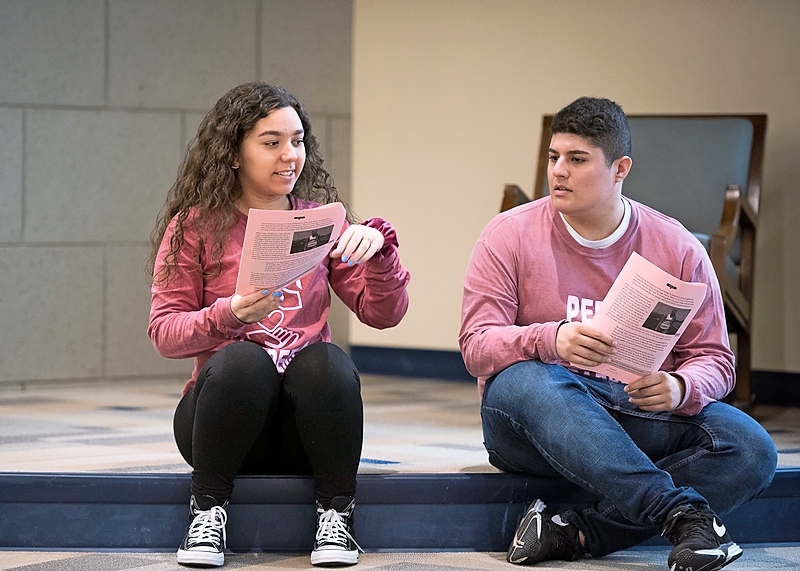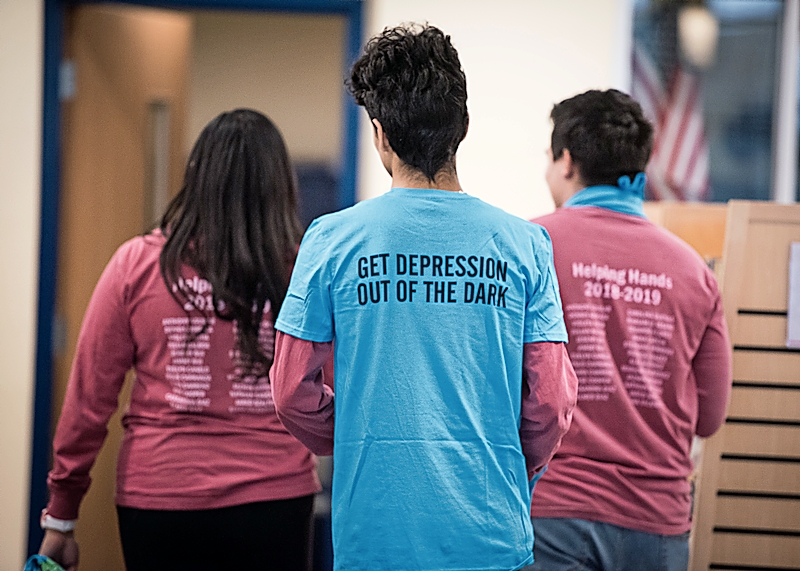Erika’s Lighthouse
By Julie Duffin
August 2020 View more Humanitarian

While the past several months have been difficult for everyone, teens have been uniquely impacted. With the cancellation of in-person classes and all the events and activities associated with the end of the school year, teens have experienced drastic changes to their already stress-filled lives. That’s why organizations like Erika’s Lighthouse are more important than ever in helping teens navigate and overcome feelings of depression.
Erika’s Lighthouse was founded in 2004 by Virginia and Thomas Neuckranz after their daughter, Erika, lost her life to depression. They founded the Winnetka-based organization with the goal of creating educational materials and resources to increase depression awareness in schools and in the community. Sixteen years later the nonprofit’s education programs are used in middle and high schools throughout Chicagoland and the country.
“We focus on depression education, but with a very positive spin. Our core messages are, ‘There is hope,’ and ‘You are not alone,’ ” explains executive director Brandon Combs. “We are unique in that we offer a train-the-trainer model. Our resources empower educators to deliver depression and suicide-prevention programming within their classrooms.” The programs offered are adaptable for individual classrooms as well as district-wide implementation. “In some schools we have one teacher using the curriculum while others use it districtwide in every sixth-grade classroom or ninth-grade health class,” Combs explains. Erika’s Lighthouse also offers teen empowerment clubs, which are turnkey programs that are peer-led and encourage dialog around positive mental health.
Erika’s Lighthouse resources are available to everyone, free of charge on its website (erikaslighthouse.org), regardless if a school district participates in its programs. In addition to a downloadable parent handbook, the website features a depression discussion guide and video program. “We outline discussion questions for parents who are concerned, yet don’t know how to bring it up in a way that doesn’t sound obnoxious or overwhelming,” Combs says.

Compounded Concerns
Although teens have countless ways to connect online, ultimately schools are still the center of their social lives. Losing in-person socialization opportunities and normal rites of passage has been a real challenge. “I think losing athletics, choir, drama, speech—whatever extracurricular activities they are in—on top of losing the day-to-day of what school is, has been extremely challenging. And that’s on top of the already anxiety-inducing stress about the virus and about how uncertain everything is,” Combs explains. “Mental health professionals are coming forward saying this is a real crisis.”
Another new challenge is determining if a teen is struggling with depression or suicidal thoughts during a time when the typical signs of adolescent depression have become our new normal. “We are all experiencing social isolation, withdrawal from friends and family, changes in behavior and even appetite,” he points out. “We really encourage families to take a more proactive approach when it comes to promoting and maintaining positive mental health. Things like exercise, proper nutrition, and good sleep patterns have all been scientifically proven to elevate our moods.”
“The thing that is so challenging with depression and suicide prevention work is the stigma that is involved. People are uncomfortable having those conversations,” Combs admits. “We encourage all parents, even those who aren’t concerned, to have a conversation with their kids. Their child just might find themselves on a Zoom call later with a friend who is struggling.”
Photos Courtesy Erika’s Lighthouse


